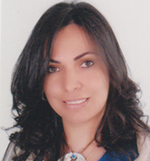In a nutshell
In the 15 months from when the policy portal was launched until the end of 2018, The Forum had published over 150 columns written by more than 170 contributors.
ERF has published columns in 30 broad areas of economic policy concerns, including coverage of all countries in the region, as well as on particular groups of countries, such as the Gulf Cooperation Council, and on pan-regional, pan-African and global policy issues.
The Forum is now moving to a new stage of development and welcomes ideas for new contributors and policy questions on which research evidence can provide valuable insights.
Economic policy debates have moved to the web: first through the blogs of individual researchers and more recently through the launch of ‘policy portals’ that feature the policy-relevant research of a wider group of researchers in universities, the private sector and government. VoxEU, which was launched in 2007, is a leading example.
This shift to the web has been sparked by a perceived need to improve the quality of the public debate on economic policy, combined with a perception that traditional media cannot serve this need. Newspapers, magazines and their websites are fast-moving and reach a wide audience, but most cover only ‘newsworthy’ policy discussions and the content of their coverage is vastly oversimplified for a broad audience. Academic publications such as working papers, journal articles and books often move too slowly and reach much too small an audience to influence policy debates.
The idea behind these policy portals is simple: they offer a managed, well-edited platform that offers a ‘space’ in the debate, somewhere between what newspapers are prepared to publish and what journals can provide. They offer an opportunity to write articles longer than newspaper op-eds (up to 1,500 words) containing a degree of technical nuance, but which do not go into the same level of detail as a journal article. They provide an outlet for researchers to air policy insights and arguments based either on an existing body of original research, or to comment on unfolding economic events.
On the supply side, these platforms make it easier for serious researchers to contribute their knowledge to important economic policy issues. On the demand side, they make the knowledge of these researchers more accessible to the public, especially economists and users of economic research in governments, international organisations, academia and the private sector, as well as journalists and commentators specialising in economics, finance, business and public policy.
The Forum
In October 2017, ERF initiated its own project of this kind, launching The Forum, a policy portal for the Middle East and North Africa that aims to become ‘the platform’ for rich and relevant debates in the region on economic, social and political development issues. It includes summaries of research papers and policy reports as well as research-based commentaries on issues relevant for the ERF region, at the national, regional and international level.
Most of the columns are commissioned directly by the co-managing editors, but The Forum also posts some unsolicited columns. Leading economists who are interested in writing a ‘research-based policy analysis and commentary’ (to borrow the VoxEU strapline) are encouraged to communicate directly with the co-managing editors and the editorial board.
Following his sterling efforts in establishing The Forum, founding editor Mustapha Nabli has now stepped down from his role as co-managing editor with Romesh Vaitilingam and his place has been taken by ERF managing director Ibrahim Elbadawi.
The rest of the editorial board consists of Hala Abou Ali (Cairo University); Ragui Assaad (American University in Cairo and University of Minnesota); Ishac Diwan (Paris Sciences et Lettres and Columbia University); Abda El-Mahdi (UNICONS Consultancy); Jamal Ibrahim Haidar (Center for International Development, Harvard Kennedy School); Samir Makdisi (American University of Beirut); Kamiar Mohaddes (Girton College, University of Cambridge); and Sherine Ghoneim (ERF).
From when the policy portal was launched in October 2017 until the end of 2018, The Forum had published over 150 columns written by more than 170 contributors. Nine contributors have been particularly prolific, publishing at least four columns to date:
- Khalid Abu-Ismail (Chief of Economic Development and Poverty Section at the United Nations Economic and Social Commission for Western Asia) has written eight pieces on poverty, inequality, fiscal policy and aid effectiveness.
- Rabah Arezki (Chief Economist for Middle East and North Africa Region at the World Bank) has written four columns on macroeconomics, commodity markets, diversification and the digital economy.
- Ragui Assaad has written four columns on Syrian refugees and the labour market in Egypt and Tunisia.
- Ralph De Haas (Director of Research at the European Bank for Reconstruction and Development) has written four columns on life satisfaction, microcredit, constraint on private enterprise and the demographic transition.
- Hassan Hakimian (Director of the London Middle East Institute at SOAS, University of London) has written four columns on four columns on Iran, growth and why economists missed the Arab Spring.
- Caroline Krafft (Saint Catherine University) has written four columns on Syrian refugees in Jordan, as well as four columns on issues around education, housing, marriage and the labour market in Egypt, Jordan and Tunisia.
- Magda Kandil (Chief Economist and Head of Research and Statistics Department at the Central Bank of the United Arab Emirates) has written four columns on oil prices, banks, corporate ownership and Iran.
- Simon Neaime (Director of the Institute of Financial Economics at the American University of Beirut) has written seven columns on fiscal and monetary policy, trade agreements, financial stability and exchange rates.
- Jackline Wahba (University of Southampton) has written four columns on education, gender, migration and the labour market.
The Forum has published columns in 30 broad areas of economic policy concerns. Topics that have received particularly extensive coverage include labour markets and human resources (28 columns); political economy (27); growth and development (23); education (20); inequality and poverty (19); international trade (19); business and productivity (18); oil and natural resources (16); fiscal policy (14); structural transformation (14); gender (12); institutions (11); and migration and remittances (10).
Similarly, The Forum has published columns focusing on all countries in the region, as well as on particular groups of countries, such as the Gulf Cooperation Council, and on pan-regional, pan-African and global policy issues. Countries for which there has been particularly extensive coverage include Egypt (28 columns); Turkey (25); and Jordan (12).
The Forum is now moving to a new stage of development and welcomes ideas for new contributors and policy questions on which research evidence can provide valuable insights.



